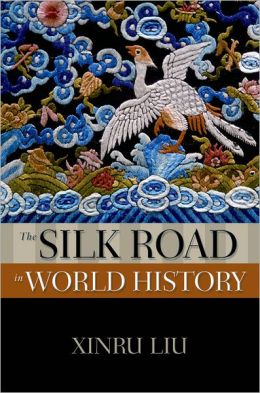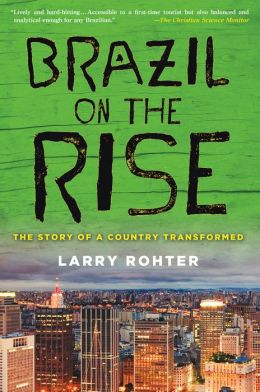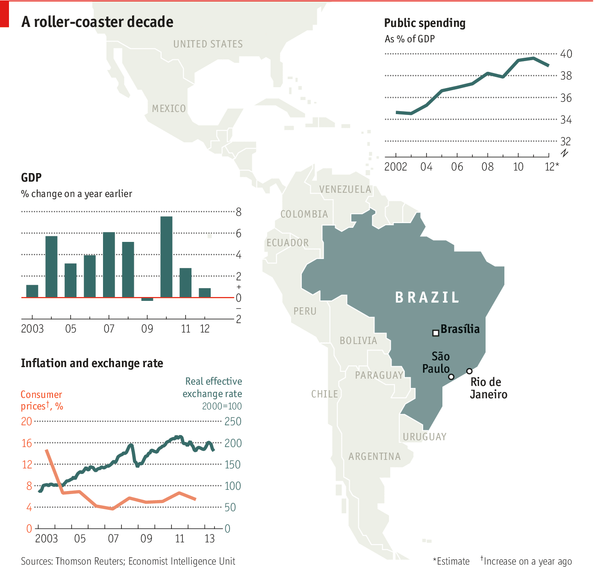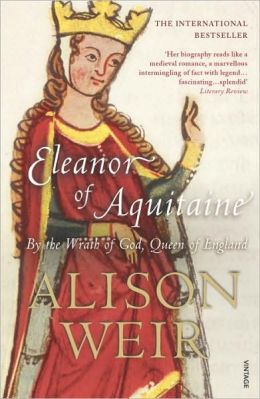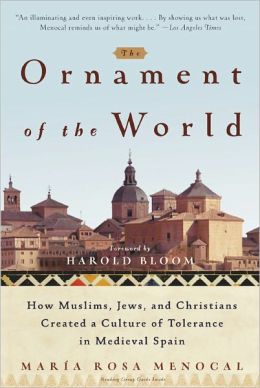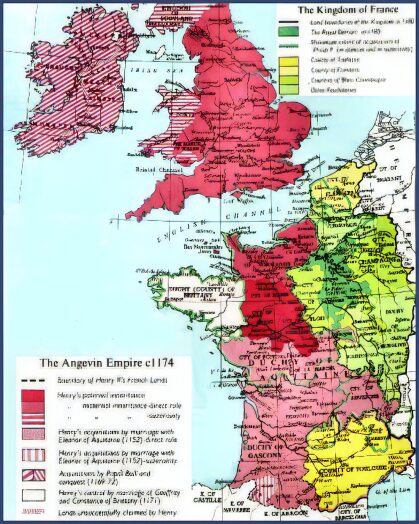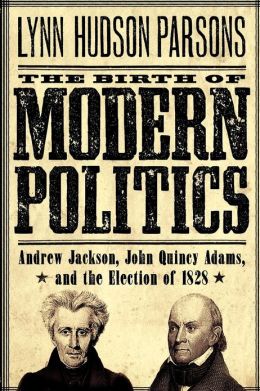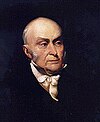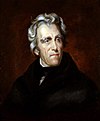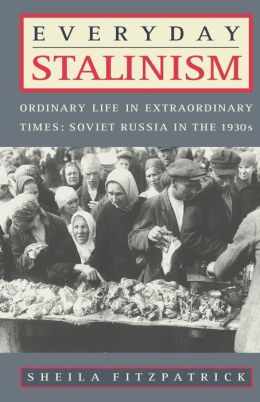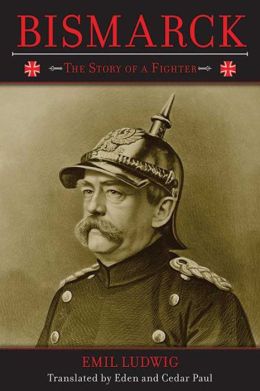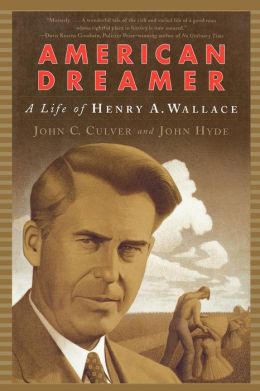Last night ten members of the club met in the Kensington Row Bookshop for a lively discussion of the founding documents of the USA. The members had been asked to read the Declaration of Independence, the Articles of Confederation and Perpetual Union, the Constitution, and its amendments before the meeting. One of the members has also suggested The Penguin Guide to the United States Constitution by Richard Beeman. Other online resources were identified including:
The Articles of Confederation and the Constitution
The founding fathers had conflicting objectives. On the one hand, they needed the colonies/states to act together militarily to protect themselves. In fact, independence from Britain was not achieved by the Americans themselves, but only when France, Spain and the Netherlands joined the war against Britain. The people of the United States could did not have the economic power, the manpower, the military power nor the naval power to defeat Britain; each of the states alone would have fallen easy prey to more powerful states. We recalled that after the Revolutionary War ended Spain still had huge colonies in North America, Britain had Canada and would seek more territory in the War of 1812 and thereafter, and France would soon acquire the Louisiana Territory. Even the Dutch, who had had a colony in New York, were still an important and active imperial power. Thus protection of the states and their people could only be guaranteed by a central government that could coordinate an army and navy and finance the defense.
On the other hand, the founding fathers didn't want to sacrifice local governance to a distant central authority more than was necessary. The colonies had very different peoples, cultures, and colonial governments. Someone from South Carolina was unlikely to have any contact with someone from Maine or New Hampshire. The founding fathers had had a bad experience with government from afar, and were not comfortable delegating a lot of power to a central government, albeit one on the Atlantic coast of North America; The preferred to keep as much power as possible close to home in the state government.
We noted that the Articles of Confederation and Perpetual Union established that the union was intended to be perpetual, and that the Constitution was intended "to perfect that union". Thus the Constitution was to perfect a perpetual union, and the two documents together precluded legal secession from that union. The Northwest Ordinance of 1787 was cited by members as a law passed by the Congress under the Articles of Confederation that remained in force under the Constitution.
That Northwest Ordinance was written to define the governance of territory ceded by several states to the federal government after the Revolutionary War. That territory would eventually be divided into several states, and the Northwest Ordinance set a precedent for establishment of new states from federal territories. It also includes a bill of rights for the people living in the territory, and forbade slavery in the territory.
The Articles of Confederation give the central government power to declare and prosecute war. The central government conducts international relations and the individual states are prohibited from doing so independently. The Articles allow the central government to assess funds from the states apportioning them according to the value of landed property in the states, but did not provide means for the collection of the assessed taxes. While the delegations of the states to the Congress can be of different sizes, each state would have only one vote.
It became clear that the central government did not function well under the Articles of Confederation. During the Revolutionary War, the troops were sometimes not paid. Some states did not pay their taxes to the federal government, and the bonds issued by the government lost their value. Shays Rebellion, in part brought on by a post war depression and lack of hard currency, catalyzed reform efforts.
A convention was convened to revise the Articles, but over time its function was transformed to writing a new Constitution. Led by the Virginia delegation that was especially concerned with the weakness of the government under the Articles, the delegates created the government with legislature, executive and judiciary branches, and gave it more power than had been given under the Articles. One of the differences we notices was that under the Constitution finance of the central government was to be raised from the states based on the population census. Thus taxes would be population based rather than property based as before.
Many of the founding fathers had read history and political philosophy and had knowledge relevant to their task. James Madison, perhaps the key member of the Constitutional Convention, before it began asked Thomas Jefferson, who was then representing the United States in France, to send him books that could inform his deliberations. On receiving a couple of hundred such books he spent time reading and thinking, preparing a memo for himself defining his constitutional philosophy.
Notably, Madison believed that the Roman Republic and the Swiss republics worked as long as they were small, but historical large republics had failed due to factionalism. That was a fear shared by many of the founding fathers, including George Washington, who warned against factions in his farewell address on leaving the office of President. Madison however proposed that a very large republic, which necessarily would have many factions, could remain functional; in such a republic, no faction could alone come to dominate. That view came to be accepted in the framing of the Constitution.
We noted that while the powers of the different branches were specified in the Constitution, as were their limitations, no duties were specified. Thus the Congress does not have a duty to pass legislation in a timely fashion in order to fund government operations and keep government open; there is no sanction if Congress fails to do so. We recalled times when the government shut down because the Congress failed to appropriate funds for its operation.
The 14th amendment to the Constitution states:
The Great Constitutional Compromises
We discussed the two great compromises in the negotiating the Constitution:
We cited Benjamin Franklin's wise comments recommending that the members of the Constitutional Convention unanimously sign the document, recommending its ratification.
The Discussion
Several members said that they had not read these documents before and were glad to have done so now. Generally the group felt that the topic for this meeting had been very well chosen, and that even without a common book to read we had learned a lot and had enough common information for an interesting and useful discussion. After two hours, when the bookstore was closing, we were still going strong, and members of the group had to be ushered out of the store, where they continued chatting on sidewalk in the cold.
- The Founders' Constitution edited by Philip Kurland and Ralph Lerner
- Constitute
- The Federalist Papers
Who Were the Founding Fathers and What Were There Interests?
We began by discussing who the "founding fathers" were and what their interests were. They were property owners and leading members of their communities chosen to represent their colonies/states.
A number of British actions were cited by members including the Proclamation of 1763 which forbade settlers from settling past a line drawn along the Appalachian Mountains, tariffs that reduced the profits of exporters, enforcement of laws against smuggling, and the effective abolition of slavery in England in 1772.. The Quebec Act of 1774 gave rights to Quebecois to use French law for some purposes, rights to practice the Catholic Religion, and dominion over lands to the Ohio River
These we saw as threatening the economic interests of the founding fathers. After independence when the Proclamation of 1763 no longer applied, land sales would eventually make many Americans rich and would pay for government for decades; George Washington himself had nominal rights to thousands of acres in the west. Merchants would lose money under the tariffs; John Hancock, a rich merchant and probably a leading smuggler whose ships were specifically targeted by the British, was very prominent among the founding fathers. Any hint that slavery would be abolished would be perceived as threatening by many; slaves were found in all the colonies before the Revolution. Some Protestants would take any opening to Catholicism as a threat.
Thus the affluent, powerful founding fathers may well have felt that their economic and other interests were threatened, and that they could better manage their own government to protect those interests.
Why Didn't We Learn These Things In School?
The discussion of the failures of our schools to teach history adequately was rather emotional. Reference was made to the school book purchasing procedures of the large states of California and Texas, and their influence on the publishing industry to produce texts that are sufficiently conservative and uncontroversial to pass the inspection of their selection boards.
It was also noted that World Wars tend to bring demands for histories of American exceptionalism and success in military endeavors, while the Cold War brought demands for books that would stress the positive aspects of American culture and downplay the less admirable aspects such as racism.
The Continental Congress
We commented on the difference between the Declaration and Resolves of the Continental Congress in 1774 and the Declaration of Independence of 1776. The earlier document has a statement of rights and a description of how parliament has passed legislation infringing on those rights. It asks for the support of the British and American people, and states that the king will be petitioned for a redress of those rights. The Declaration of Independence, written after the delegates to the Convention had received new instructions from their state legislative bodies and after a year of war, was a frank break with Britain. It ascribed the acts causing the break to the king, not the parliament.
We discussed how the founding fathers had been of divided mind, both valuing the relationship with England and valuing their own self determination. Not only did they consider themselves British in 1770, but Britain had helped defend the colonies during the French and Indian War in their lifetime, and provided a defense from other predatory imperial powers. But the founding fathers came to support independence: they thought themselves better able to advance their interests by governing themselves. However, they were not "small d" democrats, wanting to share power widely with the people.
We noted that the two documents were written by politicians to persuade people. The Declaration was initially distributed in the States and intended to gain support for Independence and the Revolutionary War; only later was it carried to England (via British troops) and the European mainland. We did not trust the members of the Continental Congress to give the real and deeper reasons in the minds of the founding fathers for independence in these documents.
We also noted that apparently the Declaration of Independence was little known and seldom referred to in the 80 years after it was promulgated. Apparently it only began to attain its current importance after the Gettysburg Address by President Abraham Lincoln. The opening of the second paragraph is relatively newly famous:
We hold these truths to be self-evident, that all men are created equal, that they are endowed by their Creator with certain unalienable Rights, that among these are Life, Liberty and the pursuit of Happiness.--That to secure these rights, Governments are instituted among Men, deriving their just powers from the consent of the governed.And that has come to be seen as an important statement of the purpose of the American government, but the founding fathers were focusing on white men, and perhaps were especially interested in creating a government to secure the rights of "substantial" men like themselves.
The Articles of Confederation and the Constitution
The founding fathers had conflicting objectives. On the one hand, they needed the colonies/states to act together militarily to protect themselves. In fact, independence from Britain was not achieved by the Americans themselves, but only when France, Spain and the Netherlands joined the war against Britain. The people of the United States could did not have the economic power, the manpower, the military power nor the naval power to defeat Britain; each of the states alone would have fallen easy prey to more powerful states. We recalled that after the Revolutionary War ended Spain still had huge colonies in North America, Britain had Canada and would seek more territory in the War of 1812 and thereafter, and France would soon acquire the Louisiana Territory. Even the Dutch, who had had a colony in New York, were still an important and active imperial power. Thus protection of the states and their people could only be guaranteed by a central government that could coordinate an army and navy and finance the defense.
On the other hand, the founding fathers didn't want to sacrifice local governance to a distant central authority more than was necessary. The colonies had very different peoples, cultures, and colonial governments. Someone from South Carolina was unlikely to have any contact with someone from Maine or New Hampshire. The founding fathers had had a bad experience with government from afar, and were not comfortable delegating a lot of power to a central government, albeit one on the Atlantic coast of North America; The preferred to keep as much power as possible close to home in the state government.
We noted that the Articles of Confederation and Perpetual Union established that the union was intended to be perpetual, and that the Constitution was intended "to perfect that union". Thus the Constitution was to perfect a perpetual union, and the two documents together precluded legal secession from that union. The Northwest Ordinance of 1787 was cited by members as a law passed by the Congress under the Articles of Confederation that remained in force under the Constitution.
That Northwest Ordinance was written to define the governance of territory ceded by several states to the federal government after the Revolutionary War. That territory would eventually be divided into several states, and the Northwest Ordinance set a precedent for establishment of new states from federal territories. It also includes a bill of rights for the people living in the territory, and forbade slavery in the territory.
The Articles of Confederation give the central government power to declare and prosecute war. The central government conducts international relations and the individual states are prohibited from doing so independently. The Articles allow the central government to assess funds from the states apportioning them according to the value of landed property in the states, but did not provide means for the collection of the assessed taxes. While the delegations of the states to the Congress can be of different sizes, each state would have only one vote.
It became clear that the central government did not function well under the Articles of Confederation. During the Revolutionary War, the troops were sometimes not paid. Some states did not pay their taxes to the federal government, and the bonds issued by the government lost their value. Shays Rebellion, in part brought on by a post war depression and lack of hard currency, catalyzed reform efforts.
A convention was convened to revise the Articles, but over time its function was transformed to writing a new Constitution. Led by the Virginia delegation that was especially concerned with the weakness of the government under the Articles, the delegates created the government with legislature, executive and judiciary branches, and gave it more power than had been given under the Articles. One of the differences we notices was that under the Constitution finance of the central government was to be raised from the states based on the population census. Thus taxes would be population based rather than property based as before.
Many of the founding fathers had read history and political philosophy and had knowledge relevant to their task. James Madison, perhaps the key member of the Constitutional Convention, before it began asked Thomas Jefferson, who was then representing the United States in France, to send him books that could inform his deliberations. On receiving a couple of hundred such books he spent time reading and thinking, preparing a memo for himself defining his constitutional philosophy.
Notably, Madison believed that the Roman Republic and the Swiss republics worked as long as they were small, but historical large republics had failed due to factionalism. That was a fear shared by many of the founding fathers, including George Washington, who warned against factions in his farewell address on leaving the office of President. Madison however proposed that a very large republic, which necessarily would have many factions, could remain functional; in such a republic, no faction could alone come to dominate. That view came to be accepted in the framing of the Constitution.
We noted that while the powers of the different branches were specified in the Constitution, as were their limitations, no duties were specified. Thus the Congress does not have a duty to pass legislation in a timely fashion in order to fund government operations and keep government open; there is no sanction if Congress fails to do so. We recalled times when the government shut down because the Congress failed to appropriate funds for its operation.
The 14th amendment to the Constitution states:
The validity of the public debt of the United States, authorized by law, including debts incurred for payment of pensions and bounties for services in suppressing insurrection or rebellion, shall not be questioned.However, the Constitution does not explicitly state that Congress has no duty to authorize funds to meet the payments due on the debt; were the government to default the Congress would not be held to account for that failure.
The Great Constitutional Compromises
We discussed the two great compromises in the negotiating the Constitution:
- That necessary to include the small states, and
- Than necessary to include the slave states of the south.
These compromises perhaps indicate the critical importance that the founding fathers attributed to finding a way to hold the union together. As Benjamin Franklin said at the signing of the Declaration of Indpendence, "we must all hang together, or assuredly we shall all hang separately."
Large states wanted a legislature responsive to the needs of their large populations. The small state compromise resulted in a House of Representatives that had membership proportional to population and a Senate with two senators for each state. In the presidential electoral college, each state had one member for each representative in the House and one for each senator. Thus citizens of small states got more influence per capita in national politics than did citizens of populous states. We recalled from previous reading, that in the latter part of the 19th century Republicans created several states with tiny populations and Republican leanings to cement their electoral advantage in the Senate and presidential elections. This Republican advantage remains. Thus in the Bush-Gore election in 2000, Gore won the electoral vote and Bush was elected president with a majority in the electoral college.
Southern states delegations wanted protection for the continuance of the institution of slavery, and wanted power in the central government reflecting the number of slaves in their states even if those slaves were not to be citizens. The compromise with the slave states made slavery legal in the United States, called for the return of fugitive slaves across state borders, and added 3/5th of the slaves to the white population to define the number of seats in the House of Representatives, and allowed the importation of slaves for some years. It also set a $10 tariff per slave -- not enough to preclude importation of new slaves but enough to raise some significant tax income for the government -- perhaps the most specific item in the Constitution. (It would take the Civil War and the Civil Rights movement to rectify the problems created by this compromise.)
Representatives would be chosen by popular vote of adult males, Senators would be elected by state legislatures, not the people. Again, the presidential electors were to be chosen by the state, not elected. Thus control of government was not to be directly in the hands of the voters, but indirectly through the selections made by their state legislatures. The founding fathers were not too comfortable with direct democracy, rather preferring to have control in the hands of men much like themselves.
The Judiciary
There is very little about the judiciary in the Constitution. It seems that each branch of government was expected to observe the rules set forth in the Constitution; the legislature would not pass an unconstitutional bill, the executive would not sign one into law nor commit an unconstitutional act, and the judiciary would adjudicate issues in accord with the Constitution. It was not until the Supreme Court decided in Marbury vs. Madison that the Court assumed the role of judging the constitutionality of acts of the other two branches.
We took a detour to talk about the proposals to reform the Supreme Court and the Constitution coming from the extreme political right. These include having some of the Supreme Court Justices appointed by the Governors rather than by the President with the consent of the Senate. Indeed, ten new amendments to the constitution have been proposed. The role of the American Legislative Exchange Council (ALEC) was mentioned in working on the state level to promote policy changes.
We appeared to agree that some age or term limit would be appropriate for Supreme Court justices. The founding fathers did not expect individuals to live as long as we do now. While job security for the justices does promote their political independence, people in the 80's are likely to have less capacity to perform the demanding intellectual work required, Indeed, members of Congress being carried into the chamber to vote seem inappropriate. Note that Jefferson believed that Senators should have six year terms to provide some insulation from popular pressure, but that they should return to private life after a single term. Perhaps some term limits or age limits for legislators might be considered. Even though President Wilson was incapacitated for a period of time during his presidency, it was not until the 25th amendment in the 1960s that the presidential succession was clarified. So, constitutional reform to impose such limits may not be quick nor easy.
We also talked about "originalism" and the difficulty of discovering the original intent of the many people who drafted the Constitution; they did not agree uniformly among themselves. Is the intent of the people who ratified the Constitution critical" What did they believe that they were ratifying? (Ratification: The People Debate the Constitution, 1787-1788 by Pauline Maier was mentioned in this context.) The Federalist Papers, in which Hamilton, Madison and Jay argued for the ratification, were written to influence public opinion, and perhaps not simply to explain the thinking of the authors much less the meaning of the articles of the Constitution. It is clear that the Supreme Court has made radical changes in its interpretation of the constitution in the past -- e.g. Plessy vs. Ferguson as compared with Brown vs. Board of Education. (Still one clearly wants the law to be known and predictable, and thus the Court to interpret it consistently until the Constitution is changed or the laws themselves changed).
Amendment
During the ratification of the Constitution anti-federalists demanded that the Constitution include a Bill of Rights. Quickly after ratification the Congress passed a set of 12 amendments, and the first ten became the requested Bill of Rights. It was suggested that the members of the Constitutional Convention rebelled against drafting a Bill of Rights; after a long summer of debates they wanted to go home.
There have only been 27 amendments since the Constitution was ratified, two being prohibition and its repeal and three implementing the changes after the civil war. The there were only 12 other amendments spread over more than two centuries. It is hard to amend the constitution.
We noted that the U.S. Constitution is not very specific, and believed that to be a deliberate decision by the founding fathers. While many Constitutions have been written and rewritten in other countries, the U.S. Constitution has lasted. It may be that it only generally lays out the structure and functions of government, leaving a great deal to be elaborated as problems are met and solved.Southern states delegations wanted protection for the continuance of the institution of slavery, and wanted power in the central government reflecting the number of slaves in their states even if those slaves were not to be citizens. The compromise with the slave states made slavery legal in the United States, called for the return of fugitive slaves across state borders, and added 3/5th of the slaves to the white population to define the number of seats in the House of Representatives, and allowed the importation of slaves for some years. It also set a $10 tariff per slave -- not enough to preclude importation of new slaves but enough to raise some significant tax income for the government -- perhaps the most specific item in the Constitution. (It would take the Civil War and the Civil Rights movement to rectify the problems created by this compromise.)
Representatives would be chosen by popular vote of adult males, Senators would be elected by state legislatures, not the people. Again, the presidential electors were to be chosen by the state, not elected. Thus control of government was not to be directly in the hands of the voters, but indirectly through the selections made by their state legislatures. The founding fathers were not too comfortable with direct democracy, rather preferring to have control in the hands of men much like themselves.
The Judiciary
There is very little about the judiciary in the Constitution. It seems that each branch of government was expected to observe the rules set forth in the Constitution; the legislature would not pass an unconstitutional bill, the executive would not sign one into law nor commit an unconstitutional act, and the judiciary would adjudicate issues in accord with the Constitution. It was not until the Supreme Court decided in Marbury vs. Madison that the Court assumed the role of judging the constitutionality of acts of the other two branches.
We took a detour to talk about the proposals to reform the Supreme Court and the Constitution coming from the extreme political right. These include having some of the Supreme Court Justices appointed by the Governors rather than by the President with the consent of the Senate. Indeed, ten new amendments to the constitution have been proposed. The role of the American Legislative Exchange Council (ALEC) was mentioned in working on the state level to promote policy changes.
We appeared to agree that some age or term limit would be appropriate for Supreme Court justices. The founding fathers did not expect individuals to live as long as we do now. While job security for the justices does promote their political independence, people in the 80's are likely to have less capacity to perform the demanding intellectual work required, Indeed, members of Congress being carried into the chamber to vote seem inappropriate. Note that Jefferson believed that Senators should have six year terms to provide some insulation from popular pressure, but that they should return to private life after a single term. Perhaps some term limits or age limits for legislators might be considered. Even though President Wilson was incapacitated for a period of time during his presidency, it was not until the 25th amendment in the 1960s that the presidential succession was clarified. So, constitutional reform to impose such limits may not be quick nor easy.
We also talked about "originalism" and the difficulty of discovering the original intent of the many people who drafted the Constitution; they did not agree uniformly among themselves. Is the intent of the people who ratified the Constitution critical" What did they believe that they were ratifying? (Ratification: The People Debate the Constitution, 1787-1788 by Pauline Maier was mentioned in this context.) The Federalist Papers, in which Hamilton, Madison and Jay argued for the ratification, were written to influence public opinion, and perhaps not simply to explain the thinking of the authors much less the meaning of the articles of the Constitution. It is clear that the Supreme Court has made radical changes in its interpretation of the constitution in the past -- e.g. Plessy vs. Ferguson as compared with Brown vs. Board of Education. (Still one clearly wants the law to be known and predictable, and thus the Court to interpret it consistently until the Constitution is changed or the laws themselves changed).
Amendment
During the ratification of the Constitution anti-federalists demanded that the Constitution include a Bill of Rights. Quickly after ratification the Congress passed a set of 12 amendments, and the first ten became the requested Bill of Rights. It was suggested that the members of the Constitutional Convention rebelled against drafting a Bill of Rights; after a long summer of debates they wanted to go home.
There have only been 27 amendments since the Constitution was ratified, two being prohibition and its repeal and three implementing the changes after the civil war. The there were only 12 other amendments spread over more than two centuries. It is hard to amend the constitution.
We cited Benjamin Franklin's wise comments recommending that the members of the Constitutional Convention unanimously sign the document, recommending its ratification.
The Discussion
Several members said that they had not read these documents before and were glad to have done so now. Generally the group felt that the topic for this meeting had been very well chosen, and that even without a common book to read we had learned a lot and had enough common information for an interesting and useful discussion. After two hours, when the bookstore was closing, we were still going strong, and members of the group had to be ushered out of the store, where they continued chatting on sidewalk in the cold.

